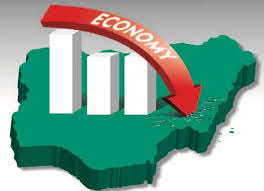The International Financial Reporting Standards (IFRS 17) is a series of accounting pronouncements published by the International Accounting Standards Board (IASB) to help preparers of financial statements, throughout the world. Already the Financial Reporting Council (FRC) says its implementation starts January 1, 2023. This report looks at Nigeria’s insurance industry preparedness in this regard.
Activation of IFRS 17
Last week in Lagos, the National Insurance Commission (NAICOM), took a deserving and exemplary step with the activation of the machinery towards the unveiling of the new International Financial Reporting Standard 17 (IFRS 17) for insurance contracts.
In the opinion of stakeholders it was the most auspicious moment to rally operators to appreciate the reality of a new set of application that will change the old ways of doing things.
The regulator, is repositioning the industry to be top contenders at the global space.
Anew directive
Already, the International Accounting Standard Board (IASB) has since May 2017 given a new directive on IFRS 17 Insurance Contract as a replacement for the current IFRS 4 .
The Financial Reporting Council, FRC, has also said it is getting its constituents ready for IFRS 17 which will be effective for annual periods beginning on or after January 1, 2023.
During a stakeholders convergence with the title, ‘Stakeholders interactive forum with FRC and International Accounting Standards Board webinar,’ the Deputy Director/ Head, Directorate of Accounting Standards Public Sector, Dr Iheanyi Anyahara, informed the gathering that on 28 May 2020, the IASB issued amendment to IFRS 16, COVID-19 related rent concessions which is effective for annual periods beginning on or after 1 June 2020.
The meeting was part of efforts by the Council to prepare its constituent for IFRS 17, insurance contracts which will be effective for annual periods beginning on or after 1 January 2023 after the standard was amended on 25 June 2020 to defer its effective date.”
Deepening knowledge of IFRS 17 penetration
He said the programme was organised in collaboration with IASB as an interactive session to deepen the knowledge on the application and implementation of IFRS 9, 16 & 17 in financial institutions in Nigeria.
Anyahara said that the Council was aware that implementing IFRS 17 commanded a radical departure from current accounting standards and produces complex operational challenges.
Need to guide users
“That is why we are organising this programme and many more in collaboration with IASB to guide the users of the standards both in application and implementation,” he said.
He said the Council would be organising more events in financial reporting, auditing and corporate governance in order to sensitise the general public and lessen the knowledge gap in IFRS standards in Nigeria, in collaboration with relevant agencies and organisations.
He mentioned that IFRS 16 was effective for annual reporting periods beginning on or after 1 January 2019 with earlier application permitted.
Standard was to report information that faithfully represented lease transactions
The main aim of the standard was to report information that faithfully represented lease transactions and provided a basis for users of financial statements to assess the amount, timing and uncertainty of cash flows arising from leases, he said.
He said the new standard required lessees to recognise nearly all leases on the balance sheet which would reflect their right to use an asset for a period of time and the associated liability for payments.
Understanding FIRS 17
It may not be a surprise that many Nigerians do not understand the meaning of International Financial Reporting Standards (IFRS), even though the insurance industry parades a galaxy of professionals, nonetheless, NAICOM is not taking anything for granted. It is poised to transform the industry to standard and compete globally.
Alistair Impey, a partner at PwC who spoke on issues relating to International Financial Reporting Standards (IFRS) and the NASB, provided a clear understanding of the procedure and professionally covered more grounds to the understanding of the public.
As a series of accounting pronouncements
Mr Impey a partner in charge of Consumer, Industrial Products and Services Group, described International Financial Reporting Standards (IFRSs) as a series of accounting pronouncements published by the International Accounting Standards Board (IASB) to help preparers of financial statements, throughout the world, produce and present high quality, transparent and comparable financial information.
The term “International Financial Reporting Standards (IFRSs) and interpretations approved by IASB and International Accounting Standards (IASs) and interpretations issued by IASB’s predecessor, the Board of International Accounting Standards Committee (IASC). Currently, financial statements prepared for reporting in Nigeria are drawn up in accordance with requirements laid down by CAMA and pronouncements issued by the Nigerian Accounting Standards Board.
Requirements based on past pronouncements
These Nigerian requirements are, in most cases based on pronouncements issued in the past by the IASB, but are not necessarily fully aligned with the current pronouncements of the IASB (for example certain financial instruments are required to be measured and reported at their fair value under IASB guidelines, whereas under Nigerian requirements these might be measured at historic cost, if any).
He said that if IFRS were to be adopted in Nigeria , Nigerian reporting entities would be using the same reporting framework as their peers worldwide which would enhance the relevance of their reports in the international arena.
Greater precision of IFRS would improve the comparability of reports
However, the greater precision of IFRS would improve the comparability of reports between different entities in Nigeria and could act as a catalyst to further develop the quality and transparence of financial reporting in the country.
Perhaps in Nigeria, national accounting standards (SASs) are partly based on old IAS, some of which have since been amended or withdrawn by IASB, whereas the local standards do not cover all the aspects of financial reporting encountered by preparers of financial statements.
Nigeria’s standards are partly out of date
Oriental News Nigeria understands that Nigeria’s standards are partly out of date and are not sufficiently comprehensive to form a basis for preparation of high quality financial statements.
PricewaterhouseCoppers network of firms, have been long proponents of a single set of high quality, global accounting standards for one simple reason our markets are global and it is important for those markets to operate under a single, principle-based language.
In the recent past, many countries in Africa , as well as the European Union countries have adopted IFRS as the financial reporting framework for their public interest companies. The Financial Accounting Standards Board (FASB) of the US has already agreed a roadmap with the IASB on the convergence of US standards and IFRS. This is recognition by large economies of the need to have high quality standards that are used consistently around the world to improve the efficiency with which capital is allocated.
Imprey, is of the opinion that there is an urgent need for NASB to start a debate on the convergence of local standards with IFRS. The convergence could be in the form of a comprehensive review and revamping of the SASs to fully comply with IFRSs, or a full adoption of IFRS as the financial reporting framework for Nigeria . This process has already started as the NASB has issued a number of Exposure Drafts in recent months to update and improve Nigerian reporting requirements.
This effort is continuing and Nigeria cannot afford to be left behind!
Michael Oseni of the Polytechnic Ibadan, in his publication titled, Application and Challenges of International Financial Reporting Standards in Nigeria, equally noted that the International Accounting Standards Board (IASB) being the global regulator of accounting standards has issued a set of standards which were known as International Financial Reporting Standards (IFRS).
However, these standards had elicited reactions not only from the profession but the academia and the business world who had made meaningful contributions to the debate.
The business world had never had anything as commonly discussed in recent times as this IFRS save the millennium bug in the twilight of the 20th century.
The genesis of IFRS is the formation of the International Accounting Standards Committee (IASC) back in 1973 as a result of an agreement by professional accountancy bodies of major markets ( United Kingdom and Ireland , United States , Australia , Canada , France , Germany , Japan , The Netherlands and Mexico ) to develop a set of accounting principles across the globe.




